#nikola vaptsarov
Text
Ölümden Önce
Acımasız, dizginsiz bir kavga bu
Başsız, sonsuz, destansı.
Bir başkası dolduracak senden boşalan safı
Burada tek adam hesabı olur mu?..
Kurşuna diziliş; çürüyüş sonra ...
Her şey yalın, mantıksal, yaşamak gibi.
Fakat birlikte olacağız büyük fırtınada
Halkım, çünkü sevdik seni...
Nikola Vaptsarov
14 notes
·
View notes
Text
“Parting” (pre-execution note)
To my wife
Sometimes I'll visit in your sleep
as an unexpected and unwanted guest.
Don't leave me outside on the road -
don't bar the doors.
I will come in quietly. Slowly, I will sit down,
and I will gaze into the dark to see you.
Once I've looked at you for long enough -
I will kiss you, and then leave you.
– Nikola Vaptsarov, tr. by @toronea
#poetry#nikola vaptsarov#spilled ink#my heart sang of you#bulgaria#bulgarian literature#bulgarian poetry#poetry blog#poetry in translation#my translation#eastern europe#european literature#socialist poetry#(this is a love poem but the author is overall socialist#he's one of the greatest)#poets on tumblr#writeblr#20th century poetry#20th century literature#40s poetry#keeping the original punctuation again. have decided to do that when i translate#ngl this one was hard because of the nuanced verbs in the original... they just don't carry the same meaning and tragedy like in bulgarian#yall are barely starting to discover non-english poetry and im here to introduce bulgarian poetry!#1942#никола вапцаров#прощално
50 notes
·
View notes
Text
Factory
Nikola Vaptsarov 1909-1942
(translator unknown)
A factory, Clouds of smoke above.
The people – simple,
The life – hard, boring.
Life with the mask and grease-paint off
Is a savage dog snarling.
You must tirelessly fight,
Must be tough and persist,
To extract from the teeth
Of the angry,
bristling beast
A crust.
Slapping belts in the shed,
Screeching shafts overhead,
And the air is so stale
You can’t easily
Deeply
Inhale.
Not far off the spring breeze
Rocks the fields, the sun calls...
Leaning skyward
the trees
Shade
The factory walls.
How unwanted,
forgotten
And strange
are the fields !
They
have thrown in the dustbin
The sky and its dreams.
For to stray for a second
Or soften your heart,
Is to lose to no purpose
Your strong
worker’s
arm.
You must shout in the clatter
And din of machines
For your words
to pass over
The spaces between.
I shouted for years –
An eternity ...
I gathered the others too shouted in chorus –
The factory,
the machinery
And the man
in the farthest,
darkest corner.
This shout forged an alloy of steel
And we armoured our life with its plate.
Just try putting
a spoke in the wheel –
It’s your own hand you’ll break.
You, factory,
Still seek to blind us
With smoke and soot,
Layer on layer.
In vain! For you teach us to struggle.
We’ll bring
The sun
Down to us here.
So many
toil-blackened
faces
Under your tyranny smart.
But one heart within you tirelessly
Beats with a thousand hearts.
0 notes
Text
Geleceğim bazen uykudayken sen Beklenmedik, uzak bir konuk gibi. Sokakta, bir başına koyma beni Kapıyı sürgüleme üstümden.  Usulca girecek, bir yere ilişeceğim Bir zaman, karanlıkta, bakacağım yüzüne. Ve yorgunluk gözkapaklarımı indirince Seni kucaklayacak ve çıkıp gideceğim.
Nikola Vaptsarov
4 notes
·
View notes
Text
thanks @sofyarostova for tagging me :)
last song: blue monday by new order. absolute banger. obsessed with the outro
currently watching: i'm not really a tv show person in general, but the last thing i watched was an one hour documentary "nikola vaptsarov: five stories about one execution" which is. about the circumstances around ww2 poet vaptsarov's death, the subsequent myth-making and the political climate of ww2 bulgaria in general
currently reading: flitting between shelley: the pursuit by richard holmes (reread), keats' odes: a lover's discourse by anahid nersessian, harrow the ninth by tamsyn muir and time shelter by georgi gospodinov
current obsession: honestly...nothing. lol. i'm having a weird time
tagging @dykejohnmilton @rock-n-rollin-bitch @vladracul @samodivas @merrymorningofmay and whoever else wants to do it
4 notes
·
View notes
Note
being bored at work is a MOOD i feel you!! 69, 70 and 72 for the ask game <3
Worst thing is I actually have a lot to do but it's so tedious 😭 shouldn't be on ny phone either but I'm going insane so idc 🙈
69. Your favorite mythological retelling
Hmm idk if I've read any yet? I love Greek mythology tho
70. Your favorite poetry collection
Motor Songs by one of my favorite Bulgarian poets, Nikola Vaptsarov
72. A book with a gorgeous cover
Homegoing by Yaa Gyasi
#thank you for sending these!#sorry for the late reply#also can i just say THANK YOU for making such a cool ask game#meg 💕#asks#tolerateit
1 note
·
View note
Text

Nikola Vaptsarov - "bulharský Julius Fučík", ke kterému se hlásí v Bulharsku i Makedonii, účastník protinacistického odboje
Světoznámý bulharský básník Nikola Vaptsarov se narodil roku 1909 ve městě Bansko v západním Bulharsku. Jeho otec Jonko Prodančin se účastnil národně osvobozeneckého boje v oblasti Pirin a matka Jelena Vezová studovala na vysoké škole v Samokově a nějakou dobu pracovala jako učitelka. Malá Nikola v sobě spojovala ctnosti obou druhů. Od útlého věku projevoval výjimečný soucit, který se později změnil v náklonost k lidem. Toto „lidumilství“ ho provázelo vždy a všude až do konce jeho života. Po ukončení základního vzdělání v rodném městě v roce 1924 nastoupil na nedokončené smíšené gymnázium v Razlogu. To byla doba jeho prvních publikací v tisku. Začal se zajímat o literaturu a snil o studiu tohoto oboru, ale podle vůle svého otce nastoupil do školy námořních motorů ve Varně (1926-1932). V posledním roce studia jako praktikant na lodi "Burgas" cestoval po Středozemním moři a věnoval této cestě cyklus básní "Imprese". V roce 1932 nastoupil jako topič do továrny na papír a lepenku bratří Balabanovů v obci Kočerinovo a poté jako mechanik. Zde založil rodinu s Bojkou Dimitrovovou a narodil se jim syn Yoncho. V roce 1936 byl propuštěn a přestěhoval se do Sofie, kde jeho malý syn zemřel ve věku sedmi měsíců. Po vážné nezaměstnanosti nastoupil Vaptsarov jako technik do továrny bratří Bugarčevů a poté pracoval jako topič na železnici a na sofijských městských jatkách. Na začátku roku 1940 vydal jedinou sbírku básní vydanou za svého života, Motorové písně. Kromě 20 děl shromážděných v knize zanechala Vaptsarova také několik desítek básní, drama "Devátá vlna", básně pro děti, eseje, články atd. Jeho život a dílo byly zasvěceny boji, touze vybudovat lepší, spravedlivější svět, prosycený jeho vírou, příslovečnou, očišťující vírou v "dobro a lidskost", která dává smysl lidské existenci. Po vypuknutí druhé světové války v roce 1941 se zapojil do protinacistického odboje. Ostně k Bulharsku byla připojena Severní Makedonie, kde odbojová skupina rovněž působila. Za necelý rok - 4. března 1942 bylo zatčeno více než 60 lidí z odboje. Mezi zatčenými byl i Nikola Vaptsarov. V dubnu ve vězení napsal své poslední básně: první verše "Smrtelná postel" a "Sbohem". Obě patří dnes k vrcholným dílům světové klasické literatury. 23. července téhož roku byly přečteny rozsudky smrti pro Nikolu Vaptsarova, Antona Popova, Antona Ivanova, Atanase Romanova, Pjotra Bogdanova a Georgije Minčeva. Podle zákona o ochraně státu musí být rozsudek vykonán do 24 hodin. Téhož večera na posádkové střelnici v Sofii odsouzení čelili smrti za doprovodu Botevovy písně "Ten, kdo padne v boji za svobodu… A několik hodin před střelbou dostalo šest z nich právo napsat své poslední dopisy svým příbuzným. Dalších pět píše takové dopisy a Nikola Vaptsarov nezanechá jediný řádek adresovaný nikomu. Ale na úkor toho, když se ho dotkla smrt, měl dost síly podívat se otevřeně do její tváře a psát básně. Napsal druhou sloku své básně "Smrtelná postel":
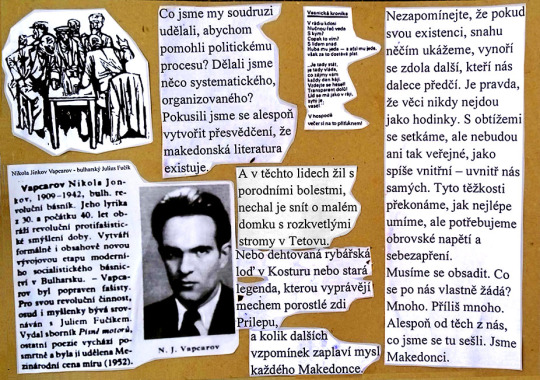
Никола Вапцаров, „Доклад“, 1936 …
Nikola Vapcarov, "Doklad"
" От Никола Иванов Вапцаров върху Македония и задълженията на писателите-македонци към нея, които трябва да следват революционните идеи на Гоце Делчев и Даме Груев.
Да се правят доклади в такъв важен момент със сухо, догматично, теоретично отношение към един проблем, който е в кръвта ни, е мисля светотатство. Не, че не трябва здраво да се разчетат всички обективни и субективни предпоставки, но струва ми се за нас като пишущи македонци е необходима една първична емоционална сила, която да раздвижи кръвта ни, да раздвижи емоционално много притъпени чувства, много спомени и да ни върне на местопредназначението ни. ила.
Ние теоретизирахме, теоретизирахме, класово разнищвахме един въпрос съвсем конкретен,
един прост въпрос, който е спомен,
един въпрос чието име е Родина.
А той живееше с родилни болки в тези хора, той ги караше да сънуват една малка
къща с разцъфтели дървета в Тетово. Или на¬смолена рибарска лодка в Костур, или една стара легенда, която разказват покритите с мъх зидове на Прилеп, и колко още спомени, които порят съзнанието на всеки македонец.
Не че фурнаджийския работник, не че гладния земеделец, не че дребния чиновник не мислят, че парите за хляба при сегашната икономическа система няма да стигнат и при независима Македония. Но нашата грешка е там, че не намерихме живата връзка между икономиката и живота, между нас и онези, които не разбират нещата в онази ширина, в която ги разби¬раме ние. И се случи така, че събитията ни надскочиха, удариха ни ритник и след този ритник тази вечер едва ние се мъчим отново да запазим равновесие. Случи се така, че в Сръбска и Гръцка Македония великобългарските утопии изстиват и крепне едно поколение, ентусиазирано от лозунга – Свободна и Независима Македония. Това е най-важния етап от македонския въпрос в последните години, който ние навреме не забелязахме и за чието проспиване носим лична и организационна отговорност. Да се търси организационна отговорност е било винаги лесно. Ние сме свикнали след всяка грешка да правим стереотипни самокритики, да приказваме, да пишеме и все пак да тъпчем на място. Но ако ние милееме за своята Родина, ако в нас има капка македонска кръв, ако в нас е останала искра от благороден патриотизъм, този път трябва да се впрегнем, за да понесеме част от тежестта на едно дело и жестокото величие на една епоха.
Действително страшни упостушения направи в народната душа бившата ВМРО. Тя ни остави едно наследство на огорчение. Една невяра. Нека не си правим илюзии, че народа в Петричко и в бежанията в България знаят добре да разграничават нашия кристален идеализъм от бандитските приьоми на михайловизма. Ние нямаме създадено едно стройно, популярно учение, което напълно да измести болк��та от простата душа с вяра. И нашите другари, които ще боравят с политика, трябва добре да внимават, защото досега е ясно, че още не е преминала организационната антипатия. Нашите другари, които ще боравят с политика трябва да оперират внимателно още и затова, че на една наша силна организация, може да бъде противопоставен като политическа нужда отново михайловизма.
Но докато дотука ние търсихме отговорности, които не ни засягаха, които бяха на педя далеч от нас, ето че камшика на обективизма трябва да заиграе и по гърбовете ни. Какво направихме ние, другари, за да помогнем на политическия процес? Направихме ли нещо системно, организирано? Помъчихме ли се поне да създадем убеждението, че съществува македонска литература. Помъчихме ли се да създадем с малките си силици, впечатление че съществува група пишущи хора, която не е забравила обществените си задължения към своята родина? Простете, другари, но аз мисля, че отговора трябва да бъде – не. В това направление не се е направило нищо повече, а дори по-малко от онова, което направи михайловизма.
Не мислете, че всичко това ще стане на един дъх. Но не забравяйте, че не сме само ние. Не забравяйте, че ако с нещо покажем
съществуването си си, усилията си, от доле ще изникнат други, които далече ще ни заминат. Верно е, че работите не тръгват никога като курдисан часовник. Ще се срещнат мъчнотии, но те няма да бъдат толкова обществени, колкото вътрешни – в самите нас. Тия мъчнотии според силите си ще преудолеем, но трябва страшно напрежение и себеотрицание.
Трябва да се напънем мъжки. Какво се иска всъщност от нас? Много. Твърде много. Поне от тези, които сме събрани тука. Ние сме македонци.
4(Трябва да се напънем мъжки. Какво се иска всъщност от нас? Много. Твърде много. Поне от тези, които сме събрани тука. Ние сме македонци. И нашето творчество трябва да бъде в служба на македонската кауза. За мнозина ще бъде трудно… "
Nikola Ivanov Vaptsarov o Makedonii a povinnostech makedonských spisovatelů vůči své zemi, včetně následování revolučních myšlenky Gotse Delcheva a Dame Gruev.
Dělat zprávy v tak důležitou chvíli se suchým, dogmatickým, teoretickým postojem k problému, který máme v krvi, je, myslím, svatokrádež. Ne, že by se neměly pečlivě číst všechny objektivní a subjektivní premisy, ale zdá se mi, že my jako makedonští spisovatelé potřebujeme prvotní emocionální sílu, která nám rozproudí krev, rozproudí emocionálně mnoho otupělých pocitů, mnoho vzpomínek a přivede nás zpět na cestu k cíli.
Teoretizovali jsme, teoretizovali jsme, řešili jsme jako třída velmi konkrétní otázku, jednoduchou otázku, kterou je paměť, otázka, která se jmenuje Vlast.
A v těchto lidech žil s porodními bolestmi, nechal je snít o malém domku s rozkvetlými stromy v Tetovu.
Nebo dehtovaná rybářská loď v Kosturu nebo stará legenda, kterou vyprávějí mechem porostlé zdi Prilepu,
a kolik dalších vzpomínek zaplaví mysl každého Makedonce.
Ale zatímco jsme hledali povinnosti, které se nás netýkaly, které byly na vzdálenost od nás,
na zádech nám musí hrát bič objektivismu.
Co jsme my soudruzi udělali, abychom pomohli politickému procesu? Dělali jsme něco systematického, organizovaného? Pokusili jsme se alespoň vytvořit přesvědčení, že makedonská literatura existuje.
Snažili jsme se svými malými siliky vzbudit dojem, že existuje skupina píšících lidí, kteří nezapomněli na své veřejné povinnosti vůči vlasti?
Nemyslete si, že se to všechno stane na jedno posezení. Ale pamatujte, nejsme to jen my. Nezapomínejte, že pokud svou existenci, snahu něčím ukážeme, vynoří se zdola další, kteří nás dalece předčí. Je pravda, že věci nikdy nejdou jako hodinky. S obtížemi se setkáme, ale nebudou ani tak veřejné, jako spíše vnitřní – uvnitř nás samých. Tyto těžkosti překonáme, jak nejlépe umíme, ale potřebujeme obrovské napětí a sebezapření.
Musíme se obsadit. Co se po nás vlastně žádá? Mnoho. Příliš mnoho. Alespoň od těch z nás, co jsme se tu sešli. Jsme Makedonci.
A naše dovednost musí sloužit makedonské věci. Pro mnohé to bude těžké…“
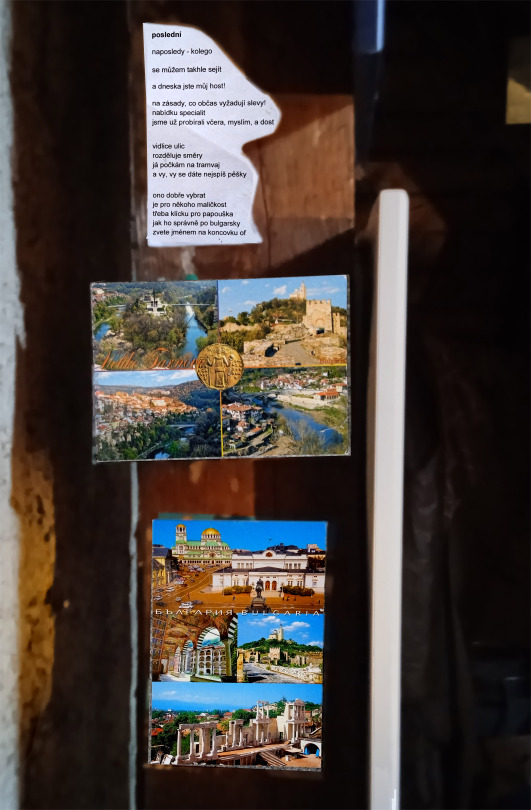


Veliké Tarnovo
0 notes
Text
🇧🇬Bansko🇧🇬
Last month, I travelled to Bulgaria to see my boyfriend. Together, we went to Bansko, a very famous winter destination in the mountains of Bulgaria.
Although we didn't stay as long as one would need if he was to explore the entire town, we stayed an entire day, which we spent in museums, restaurants and walking around.
My first impression of the town, was how it looked more like a village for the better part, but then in the heart of it, there, because of the many tourist businesses, there it truly felt like a town or even a city.
The buildings gave me mixed opinions, some were absolutely beautiful, and some were ruins or ugly brick houses that didn't match the old style of the rest.
The roads were a pleasant suprise, they matched the atmosphere of the town, and the architecture as well.
The town squares and the parks also looked nice, gave you a feeling of warmth, if that makes any sense, even though that was in January 😂
As for the nature unfortunately, I cannot say, since we didn't go outside of the town that day, because it was very cold, and we preferred to spend the day visiting museums, churches, walking around the town, taking pictures and eating out.
🇧🇬
-------------------------------------

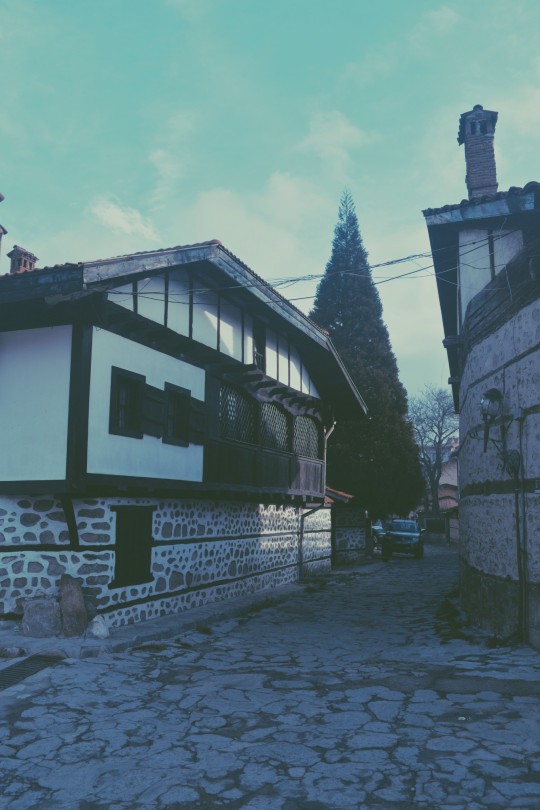
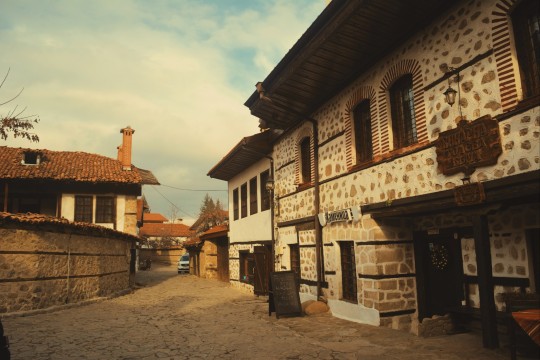



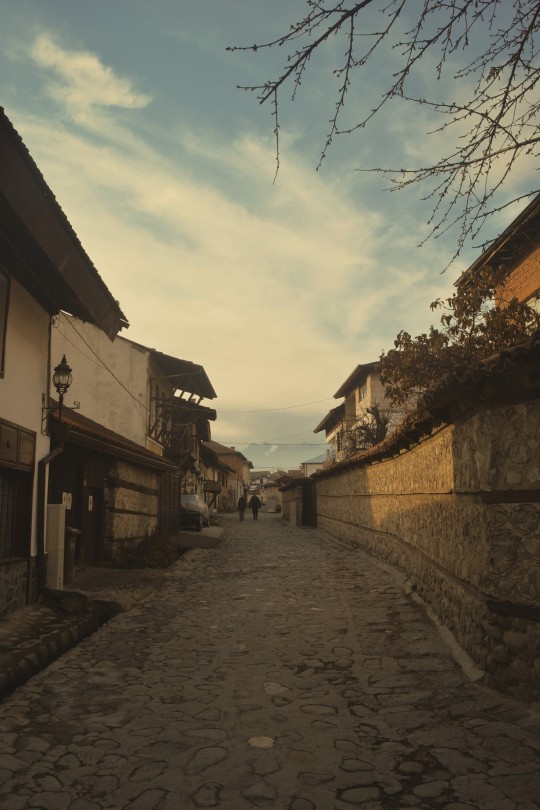
-------------------------------------
Sightseeings
The town has many House-Musuems, most of which, houses of important Bulgarian historical figures.
I can't say that those House-Musuems were impressing, but they were definitely worth visiting if one is interested in 19th century Bulgarian Architecture, or, interested in learning more about Bulgarian Historical figures.
Specifically, I'd recommend visiting :
• The House Museum of Nikola Vaptsarov
• The Neofit Rilski-House Museum
• The Museum Velyan-House
Another thing worth visiting in Bansko, is its beautiful church of Holy Trinity. It has a magnificent bell tower as well, made entirely of stone.
The inside is filled with beautiful wall paintings, and the outside also has a nice yard.
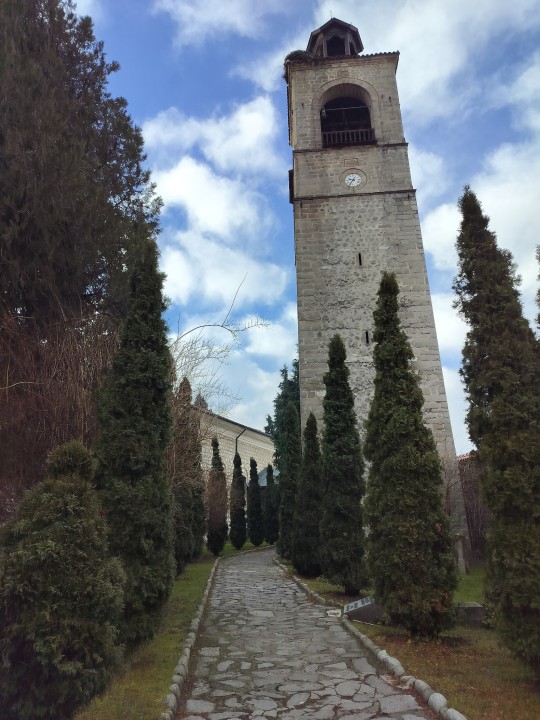
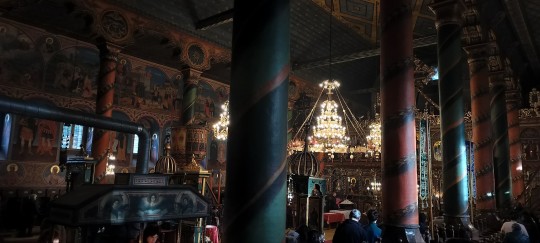
🇧🇬
---------------------------------------------------
Places to Eat-Drink
The town offers a great amount of cafeterias, restaurants or even snacks from bakeries, in fairly low prices (15-20€ for two people to have a nice dinner)
There are countless of restaurants, with a very warm and cosy atmosphere, that make you feel at home. The perfect town to find picturesque restaurants.
I'd personally recommend
• Pitsinna Kruchma
A very nice restaurant in the heart of Bansko, with amazing food quality, service, hospitality and relatively good prices.
🇧🇬
-------------------------------------
Things to Do
Most people that go to Bansko, visit during the winter time. Because of its mountainous location, and its proximity to the ski centre, a lot of people visit the town just for that. However, it should be noted that it's also an amazing town if you want to explore the nearby mountains while hiking.
I wish I had more time there, so that I could explore the nearby mountains, and maybe, who knows, go skiing 😂⛷️
🇧🇬
_________________________________________
Now last but not least, I'd like to add how because of its popularity, the town is more expensive than most, and will be more expensive than most in the country. Is it worth it in the end? Absolutely!
* The town has trains and busses connecting it to other cities daily!
🇧🇬
-------------------------------------
Have a nice day! 🖤

#Bulgaria#balkan#balkans#travel#travelling#blog#girl#girlblogging#aesthetic#good vibes#winter#photography
1 note
·
View note
Text
TARİH.
/.../
Çünkü hayat aman dinlemeden
dövdü bizi ağır elleriyle.
vurdu ! vurdu aç avurtlarımıza,
paslıdır dilimiz bu yüzden.
..
Bu yüzden, uykularımdan
çalarak yazdığım şiirler,
parfüm kokmaz, bu yüzden
kısadır o çatık kaşlı sözler.
...
Çektiklerimiz için,
yok ödül filan beklediğimiz
ne de o koca ciltlerinde
resmimiz olsun isteriz.
...
Yalnız yalın anlat öykümüzü
geleceğin insanlarına.
yerimizi alacaklara anlat
nasıl cesurduk kavgada.
* Nikola Vaptsarov *
( 1909 - 1942 )

0 notes
Text
Events 7.23 (before 1950)
811 – Byzantine emperor Nikephoros I plunders the Bulgarian capital of Pliska and captures Khan Krum's treasury.
1319 – A Knights Hospitaller fleet scores a crushing victory over an Aydinid fleet off Chios.
1632 – Three hundred colonists bound for New France depart from Dieppe, France.
1677 – Scanian War: Denmark–Norway captures the harbor town of Marstrand from Sweden.
1793 – Kingdom of Prussia re-conquers Mainz from France.
1813 – Sir Thomas Maitland is appointed as the first Governor of Malta, transforming the island from a British protectorate to a de facto colony.
1821 – While the Mora Rebellion continues, Greeks capture Monemvasia Castle. Turkish troops and citizens are transferred to Asia Minor's coasts.
1829 – In the United States, William Austin Burt patents the typographer, a precursor to the typewriter.
1840 – The Province of Canada is created by the Act of Union.
1862 – American Civil War: Henry Halleck becomes general-in-chief of the Union Army.
1874 – Aires de Ornelas e Vasconcelos is appointed the Archbishop of the Portuguese colonial enclave of Goa, India.
1881 – The Boundary Treaty of 1881 between Chile and Argentina is signed in Buenos Aires.
1900 – Pressed by expanding immigration, Canada closes its doors to paupers and criminals.
1903 – The Ford Motor Company sells its first car.
1908 – The Second Constitution accepted by the Ottomans.
1914 – Austria-Hungary issues a series of demands in an ultimatum to the Kingdom of Serbia demanding Serbia to allow the Austrians to determine who assassinated Archduke Franz Ferdinand. Serbia accepts all but one of those demands and Austria declares war on July 28.
1919 – Prince Regent Aleksander Karađorđević signs the decree establishing the University of Ljubljana.
1921 – The Chinese Communist Party (CCP) is established at the founding National Congress.
1926 – Fox Film buys the patents of the Movietone sound system for recording sound onto film.
1927 – The first station of the Indian Broadcasting Company goes on the air in Bombay.
1936 – In Catalonia, Spain, the Unified Socialist Party of Catalonia is founded through the merger of Socialist and Communist parties.
1940 – The United States' Under Secretary of State Sumner Welles issues a declaration on the U.S. non-recognition policy of the Soviet annexation and incorporation of three Baltic states: Estonia, Latvia and Lithuania.
1942 – World War II: The German offensives Operation Edelweiss and Operation Braunschweig begin.
1942 – Bulgarian poet and Communist leader Nikola Vaptsarov is executed by firing squad.
1943 – The Rayleigh bath chair murder occurred in Rayleigh, Essex, England.
1943 – World War II: The British destroyers HMS Eclipse and HMS Laforey sink the Italian submarine Ascianghi in the Mediterranean after she torpedoes the cruiser HMS Newfoundland.
1945 – The post-war legal processes against Philippe Pétain begin.
1 note
·
View note
Text
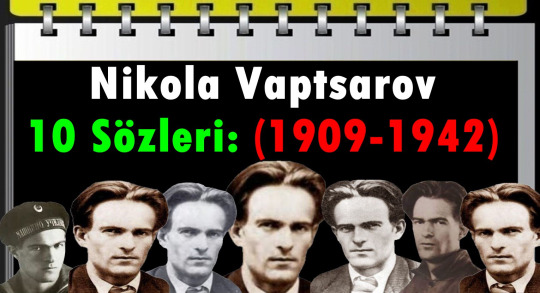
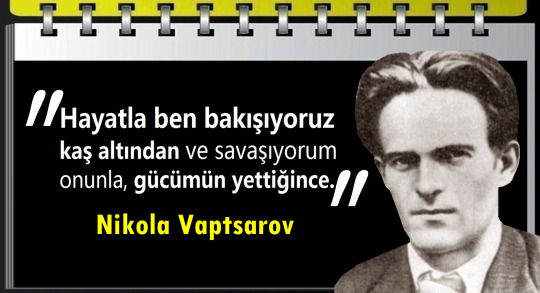
Nikola Vaptsarov (1909-1942) Bulgar şair. Vikipedi
Nikola Vaptsarov 10 Sözleri: (1909-1942)
Batsın aptalca felsefeniz. Nikola Vaptsarov
Halk cahil, hayat ağır, sıkıcı. Nikola Vaptsarov
Yavaş yavaş soğuyordu son umutlarımız. Nikola Vaptsarov
Çünkü hayat acımadan vuruyor yüzümüze. Nikola Vaptsarov
İşte, soluk alıyorum, çalışıyorum, yaşıyorum. Nikola Vaptsarov
Ve yenilip gideceksin sen ey yozlaşmış, berbat hayat. Nikola Vaptsarov
Tiksiniyorum insan denen şeyden. Layık değil sizin övgünüze. Nikola Vaptsarov
Ah, kötü, çok kötü şu dünyanın düzeni! Başka türlü olabilirdi oysa. Nikola Vaptsarov
Tiyatro insanlar için lüks olmaktan çıkmalı, bir ihtiyaca dönüşmelidir. Nikola Vaptsarov
Hayatla ben bakışıyoruz kaş altından ve savaşıyorum onunla, gücümün yettiğince. Nikola Vaptsarov
https://i.ibb.co/r4CSph3/Nikola-Vaptsarov-S-zleri.gif
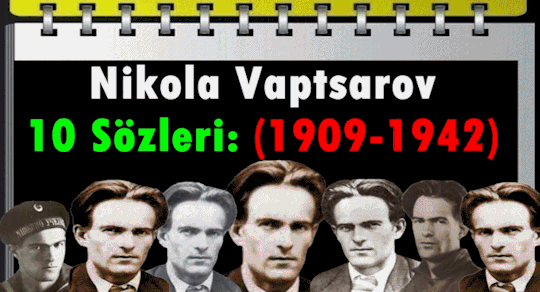
youtube
1 note
·
View note
Photo

Rila Monastery
Rila Monastery has been included in the World Cultural Heritage Fund and is under the protection of UNESCO
The new Hotel Rilets — (three star) has 14 single rooms, 64 double rooms and 5 suites. There is a drag lift near the hotel.
country. It is situated on the banks of the Blagoevgradska river. The town was built on the ruins of the ancient Thracian town of Scaptopara (3rd century B.C.), traces of which can still be found. The town was later destroyed to be rebuilt again in the 16th century under the Turkish name of Djoumaya (Market), It was a trading centre on the road leading south along the valley of the river Strouma.
Blagoevgrad is an industrial centre
Today Blagoevgrad is an industrial centre and potential for development. Around the town are mineral springs which were famous even in ancient times. The temperature of the water is around 60°C. There are two modem hotels, Alen Mak — (three star), with 22 single and 138 double rooms and two suites, restaurant, bar, and souvenir shop; Hotel Bor — (two star), with 29 double rooms, four apartments, restaurant. There is a car service rooms, four apartments, restaurant. There is a car service station on the road to Sofia The address of the District Council of Motorists is 6 N. Vaptsarov, tel. 5544. The town of Smith (population 6,500) is 17 kilometres to the south and has 30 hot springs with water temperatures round 60°C. From here a road forks left to the picturesque mountain towns of Razlog (population 17,000) and Barnko (population 12,000) in the foothills of the Pirin Mountains. Original buildings architectural interiors have been preserved in Bansko. It is the birth place of the founder of Bulgaria’s Revival, Paissi of Hilendar (1723) and of the eminent Bulgarian poet and revolutionary, Nikola Vaptsarov, whose house is now a museum. Of particular interest are the old houses of Todev, Sirleshov and Vilyanov sofia city tour, as well as the Church of the Virgin Mary built when Bulgaria fell under Ottoman domination. During the second half of the 18th century an unknown wood- carver made the iconostasis similar in artistic merit to that of Rila monastery The new Church of St. Trinity differs from other Bulgarian churches. Its architecture is reminiscent of Italian belfries although it was built by local masters. Its murals are the work of Dimiter Molera and Belyan Ognev. The Belfry and the Clock Tower were erected in 1846 to the desjgn of the local master Gligor Iyov, Todor Hadjiradanov from Bansko was the clock maker.
Other prominent Bulgarians are also associated with Bansko. In 1896 the Bulgarian revolutionary, Gotse Delchev, taught here. For four months he lived in Todev’s house whence he directed preparations for the 1903 uprising of Macedonia.
Visitors can stay at the Balkantourist Pirin Hotel which has 103 rooms and five suites, restaurant and night club. There is also a hostel with accommodation for 150. Bansko is a good starting point for exploring the Pirin Mountains.
0 notes
Photo
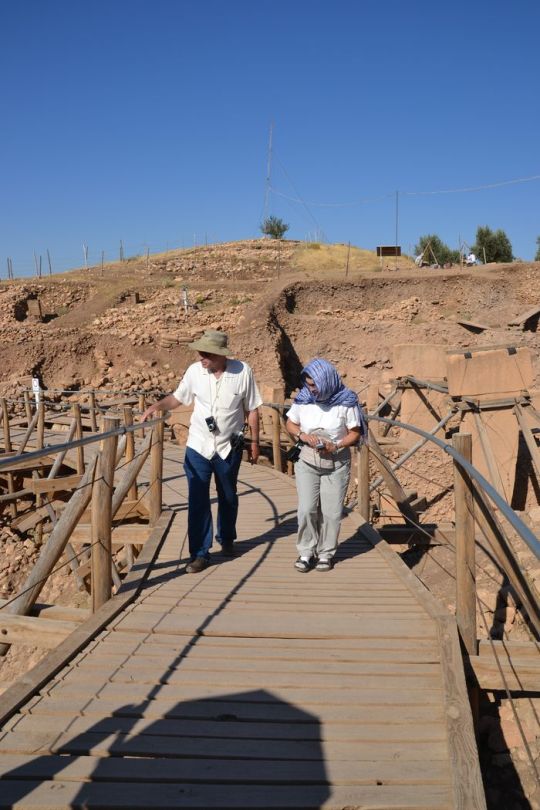
Rila Monastery
Rila Monastery has been included in the World Cultural Heritage Fund and is under the protection of UNESCO
The new Hotel Rilets — (three star) has 14 single rooms, 64 double rooms and 5 suites. There is a drag lift near the hotel.
country. It is situated on the banks of the Blagoevgradska river. The town was built on the ruins of the ancient Thracian town of Scaptopara (3rd century B.C.), traces of which can still be found. The town was later destroyed to be rebuilt again in the 16th century under the Turkish name of Djoumaya (Market), It was a trading centre on the road leading south along the valley of the river Strouma.
Blagoevgrad is an industrial centre
Today Blagoevgrad is an industrial centre and potential for development. Around the town are mineral springs which were famous even in ancient times. The temperature of the water is around 60°C. There are two modem hotels, Alen Mak — (three star), with 22 single and 138 double rooms and two suites, restaurant, bar, and souvenir shop; Hotel Bor — (two star), with 29 double rooms, four apartments, restaurant. There is a car service rooms, four apartments, restaurant. There is a car service station on the road to Sofia The address of the District Council of Motorists is 6 N. Vaptsarov, tel. 5544. The town of Smith (population 6,500) is 17 kilometres to the south and has 30 hot springs with water temperatures round 60°C. From here a road forks left to the picturesque mountain towns of Razlog (population 17,000) and Barnko (population 12,000) in the foothills of the Pirin Mountains. Original buildings architectural interiors have been preserved in Bansko. It is the birth place of the founder of Bulgaria’s Revival, Paissi of Hilendar (1723) and of the eminent Bulgarian poet and revolutionary, Nikola Vaptsarov, whose house is now a museum. Of particular interest are the old houses of Todev, Sirleshov and Vilyanov sofia city tour, as well as the Church of the Virgin Mary built when Bulgaria fell under Ottoman domination. During the second half of the 18th century an unknown wood- carver made the iconostasis similar in artistic merit to that of Rila monastery The new Church of St. Trinity differs from other Bulgarian churches. Its architecture is reminiscent of Italian belfries although it was built by local masters. Its murals are the work of Dimiter Molera and Belyan Ognev. The Belfry and the Clock Tower were erected in 1846 to the desjgn of the local master Gligor Iyov, Todor Hadjiradanov from Bansko was the clock maker.
Other prominent Bulgarians are also associated with Bansko. In 1896 the Bulgarian revolutionary, Gotse Delchev, taught here. For four months he lived in Todev’s house whence he directed preparations for the 1903 uprising of Macedonia.
Visitors can stay at the Balkantourist Pirin Hotel which has 103 rooms and five suites, restaurant and night club. There is also a hostel with accommodation for 150. Bansko is a good starting point for exploring the Pirin Mountains.
0 notes
Photo

Rila Monastery
Rila Monastery has been included in the World Cultural Heritage Fund and is under the protection of UNESCO
The new Hotel Rilets — (three star) has 14 single rooms, 64 double rooms and 5 suites. There is a drag lift near the hotel.
country. It is situated on the banks of the Blagoevgradska river. The town was built on the ruins of the ancient Thracian town of Scaptopara (3rd century B.C.), traces of which can still be found. The town was later destroyed to be rebuilt again in the 16th century under the Turkish name of Djoumaya (Market), It was a trading centre on the road leading south along the valley of the river Strouma.
Blagoevgrad is an industrial centre
Today Blagoevgrad is an industrial centre and potential for development. Around the town are mineral springs which were famous even in ancient times. The temperature of the water is around 60°C. There are two modem hotels, Alen Mak — (three star), with 22 single and 138 double rooms and two suites, restaurant, bar, and souvenir shop; Hotel Bor — (two star), with 29 double rooms, four apartments, restaurant. There is a car service rooms, four apartments, restaurant. There is a car service station on the road to Sofia The address of the District Council of Motorists is 6 N. Vaptsarov, tel. 5544. The town of Smith (population 6,500) is 17 kilometres to the south and has 30 hot springs with water temperatures round 60°C. From here a road forks left to the picturesque mountain towns of Razlog (population 17,000) and Barnko (population 12,000) in the foothills of the Pirin Mountains. Original buildings architectural interiors have been preserved in Bansko. It is the birth place of the founder of Bulgaria’s Revival, Paissi of Hilendar (1723) and of the eminent Bulgarian poet and revolutionary, Nikola Vaptsarov, whose house is now a museum. Of particular interest are the old houses of Todev, Sirleshov and Vilyanov sofia city tour, as well as the Church of the Virgin Mary built when Bulgaria fell under Ottoman domination. During the second half of the 18th century an unknown wood- carver made the iconostasis similar in artistic merit to that of Rila monastery The new Church of St. Trinity differs from other Bulgarian churches. Its architecture is reminiscent of Italian belfries although it was built by local masters. Its murals are the work of Dimiter Molera and Belyan Ognev. The Belfry and the Clock Tower were erected in 1846 to the desjgn of the local master Gligor Iyov, Todor Hadjiradanov from Bansko was the clock maker.
Other prominent Bulgarians are also associated with Bansko. In 1896 the Bulgarian revolutionary, Gotse Delchev, taught here. For four months he lived in Todev’s house whence he directed preparations for the 1903 uprising of Macedonia.
Visitors can stay at the Balkantourist Pirin Hotel which has 103 rooms and five suites, restaurant and night club. There is also a hostel with accommodation for 150. Bansko is a good starting point for exploring the Pirin Mountains.
0 notes
Photo
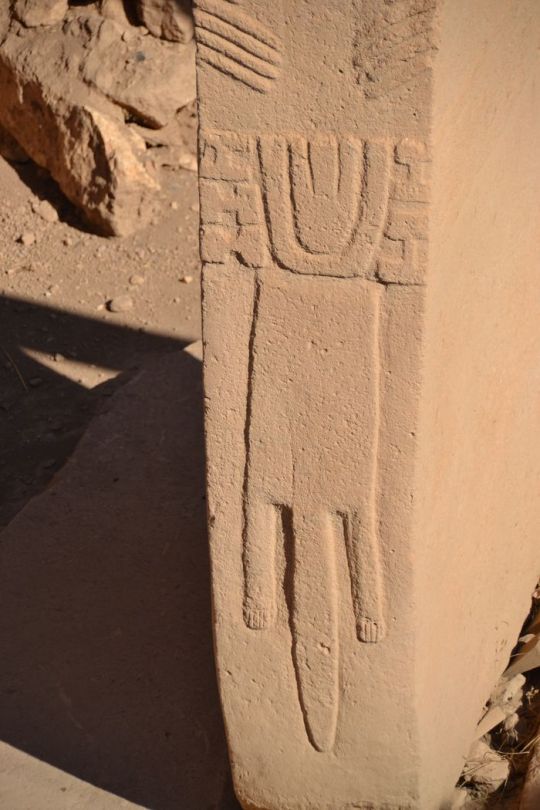
LITERATURE
Bulgarian cultural heritage is very long and impressive. Modern culture encourages innovation as well as the preservation of tradition.
LITERATURE
In the 9th century, Cyril and Methodius created the cyrillic alphabet which was also adopted by Serbia, Russia and Romania. Under Prince Boris I in Ohrid, and later under Tsar Simeon in Veliki Preslav, two outstanding literary schools were established where ancient scripts were translated and original works commissioned. During the Second Bulgarian State the Tumovo literary school was established wnich flourished until Bulgaria fell to the Ottoman empire. During the Ottoman rule, from 15-lSth century, oral folklore carried on the literary tradition.
the origin of Modern Bulgarian literature must be placed at the time of the Bulgarian National Revival the landmark being the publication of the Slav-Bulgarian History by Paissi of Hilendar in 1762, The works of Hristo Botev, the poet and revolutionary daily tours istanbul, followed shortly after, as well as those of the novelist Lyuben Karavelov and poet Petko Slaveikov. After liberation from the Turks the tradition continued with Ivan Vazov, acclaimed the father of modern Bulgarian literature, whose works are translated into the majority of European languages.
1923-44 saw the appearance of socialist realism in Bulgarian literature with Hristo Smymenski, Nikola Vaptsarov and many others. Modem writers include Georgi Karaslavov, Lyudmil Stoyanov, Dimiter Talev, etc.
FINE ARTS
Artistic traditions of various civilizations were apparent on the territory of present day Bulgaria. The oldest gold treasure in the world was discovered in the Chalcolithic necropolis near Varna (3,200-3000 B.C.)., The Thracians left magnificent frescoes in the Kazanluk tomb (3rd century BC) and more gold treasures were discovered near the village of Vulchi Trun, Pa- nagyurishte etc. The remains of palaces have survived in the old capitals of Pliska, Veliki Preslav and Veliko Tumovo. The village of Madara near Shoumen, boasts of a remarkable bas-relief, cut out of the rocks. It features a horseman piercing a lion with his spear (8th century). The frescoes in the Boyana Church (1259) and Zemen Monastery (mid-14th century’) are
A view to the National Assembly and ski Memorial Cathedral. In the forefront – the Monument of exceptional artistic excellence. The Man asses5 Chronicle (14th century), is kept at the Vatican museum; Tzar Ivan Alexander’s Tetraevangelia (14th century) is in Moscow. During the Bulgarian National Revival, schools of woodcarving were established at Samokov, Bansko, Debur and Tryavna. Among the best woodcarvings are those of the Rila Monastery, church of the Virgin Mary in Pazardjik, St. Marina in Plovdiv and the Rozhen Monastery near Melnik.
0 notes
Photo
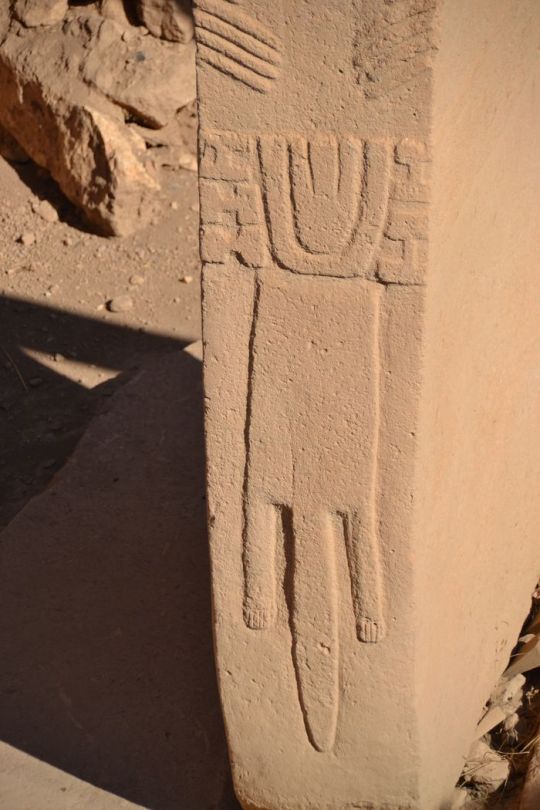
LITERATURE
Bulgarian cultural heritage is very long and impressive. Modern culture encourages innovation as well as the preservation of tradition.
LITERATURE
In the 9th century, Cyril and Methodius created the cyrillic alphabet which was also adopted by Serbia, Russia and Romania. Under Prince Boris I in Ohrid, and later under Tsar Simeon in Veliki Preslav, two outstanding literary schools were established where ancient scripts were translated and original works commissioned. During the Second Bulgarian State the Tumovo literary school was established wnich flourished until Bulgaria fell to the Ottoman empire. During the Ottoman rule, from 15-lSth century, oral folklore carried on the literary tradition.
the origin of Modern Bulgarian literature must be placed at the time of the Bulgarian National Revival the landmark being the publication of the Slav-Bulgarian History by Paissi of Hilendar in 1762, The works of Hristo Botev, the poet and revolutionary daily tours istanbul, followed shortly after, as well as those of the novelist Lyuben Karavelov and poet Petko Slaveikov. After liberation from the Turks the tradition continued with Ivan Vazov, acclaimed the father of modern Bulgarian literature, whose works are translated into the majority of European languages.
1923-44 saw the appearance of socialist realism in Bulgarian literature with Hristo Smymenski, Nikola Vaptsarov and many others. Modem writers include Georgi Karaslavov, Lyudmil Stoyanov, Dimiter Talev, etc.
FINE ARTS
Artistic traditions of various civilizations were apparent on the territory of present day Bulgaria. The oldest gold treasure in the world was discovered in the Chalcolithic necropolis near Varna (3,200-3000 B.C.)., The Thracians left magnificent frescoes in the Kazanluk tomb (3rd century BC) and more gold treasures were discovered near the village of Vulchi Trun, Pa- nagyurishte etc. The remains of palaces have survived in the old capitals of Pliska, Veliki Preslav and Veliko Tumovo. The village of Madara near Shoumen, boasts of a remarkable bas-relief, cut out of the rocks. It features a horseman piercing a lion with his spear (8th century). The frescoes in the Boyana Church (1259) and Zemen Monastery (mid-14th century’) are
A view to the National Assembly and ski Memorial Cathedral. In the forefront – the Monument of exceptional artistic excellence. The Man asses5 Chronicle (14th century), is kept at the Vatican museum; Tzar Ivan Alexander’s Tetraevangelia (14th century) is in Moscow. During the Bulgarian National Revival, schools of woodcarving were established at Samokov, Bansko, Debur and Tryavna. Among the best woodcarvings are those of the Rila Monastery, church of the Virgin Mary in Pazardjik, St. Marina in Plovdiv and the Rozhen Monastery near Melnik.
0 notes